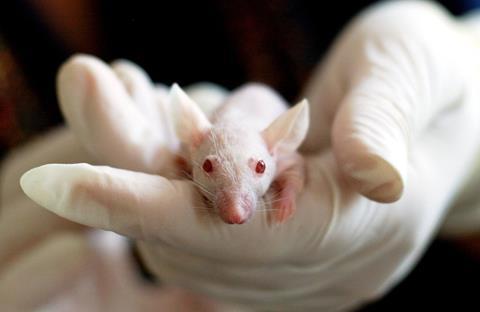Scientists have established that microbial communities in the gut are involved with the immune system and play a role in mental health. Now they can add helping grow a healthy placenta during pregnancy to the list of unexpected ways the gut microbiome influences health and well-being.

New research led by UCLA scientists and published in the journal Science Advances shows that mice with depleted gut microbiomes had smaller placentas than normal mice and that the network of blood vessels between the placenta and the fetus was also less developed.
Either of these conditions could deprive a fetus of nutrients, oxygen and other things it needs to grow. But when malnourished pregnant mice that had been fed low-protein diets and had diminished microbiomes were supplemented with short-chain fatty acids, which are produced by gut microbes, their placentas grew to normal size, the researchers said.
New blood vessels
The new findings add to mounting evidence that in addition to its many other activities, the gut microbiome plays a role in the formation of new blood vessels, a process known as angiogenesis. They also show that byproducts of microbe metabolism known as metabolites play key roles in feto-placental development.
“The gut microbiome affects many aspects of host physiology, and more and more evidence is suggesting that it begins to exert its influence even during prenatal life,” said senior author Elaine Hsiao, a UCLA associate professor of microbiology, immunology and molecular genetics.
The new research builds on previous laboratory work by Hsiao demonstrating the influence of the gut microbiome on the development of the fetal nervous system. Emerging research is revealing that the gut microbiome also influences human fetal development, but just how this happens is not well understood.
Placental development
To learn how the vast colonies of bacteria that populate the gut affect something as seemingly distant and separate as the maternal-fetal environment, Geoffrey Pronovost, a UCLA doctoral student in Hsiao’s lab, led a team that looked at two groups of female mice: one that had been raised to have no microbiome and an adult group to which they gave broad-spectrum antibiotics to diminish their microbial population. They then then mated each of these groups with male mice to study placental development.
Pronovost and Hsiao suspected that microbial metabolites circulating in the bloodstream might be the missing link.
Compared with a control group of mice with normal microbiomes, these mice had smaller placentas with less-developed networks of placental blood vessels, the vasculature that facilitates the exchange of blood between mother and fetus. But the maternal microbiome’s importance did not stop at vasculature. Fetuses of microbiome-depleted mothers also had lower levels of 27 different metabolites and higher levels of 14 circulating in their blood.
Deeper dive
“This added weight to our initial hypothesis that byproducts made by specific gut bacteria might be acting systemically to regulate feto-placental development and motivated the deeper dive in our study to identify the molecules involved,” Pronovost said.
However, injections of some of the metabolites found in low levels in the mice did not improve placental or fetal growth.
Since those metabolites didn’t seem to be directly responsible for the underdeveloped placentas, the researchers turned their attention to another class of metabolites called short-chain fatty acids, which are produced by bacterial fermentation of carbohydrates and play several roles in metabolism and growth.
Placental growth
When they gave microbiome-deficient mothers drinking water supplemented with these fatty acids, their placentas grew, becoming equivalent in size to the control group’s placentas. The fatty acids also promoted placental growth in undernourished pregnant mice that had been fed a low-protein diet but still had diminished gut microbes.
Although there are important differences between mouse and human gestation, the researchers said it’s possible that similar results might one day be found in humans.
“I’m hopeful that these fundamental discoveries in mice could inspire more research that could one day inform new treatment strategies for expectant mothers and their developing babies,” said Hsiao.
The research was funded by the National Institutes of Health and the New York Stem Cell Foundation.







No comments yet